Homebrew Electronics is a new series on the Rhizome blog. For these posts, I will be conducting studio visits with artists and inventors who create unique electronic instruments.
Last week, I met up with Jeff Donaldson, aka noteNdo, on a particularly sweltering summer day in his studio in Bushwick. For close to a decade, Jeff has been modifying video game consoles to produce glitchy audio and visual material. These machines form the backbone of his practice, which began primarily in a live performance context, and has expanded from there. In the past few years, Jeff has begun to apply the patterns created from his consoles into material form by making scarves and prints, and more recently, he’s moved into fully immersive, interactive installations. For this studio visit, he walked me through a number of his consoles.
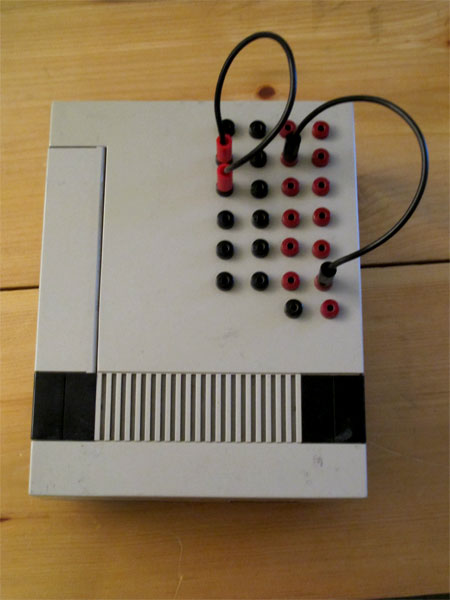
Meet Leo. Named after Leon Theremin, this Nintendo NES from 1985 was one of Jeff’s first projects and has become a staple in his work. He got the idea to make animation after a vivid dream - and set out on his Nintendo NES, the only tool he had at the time.
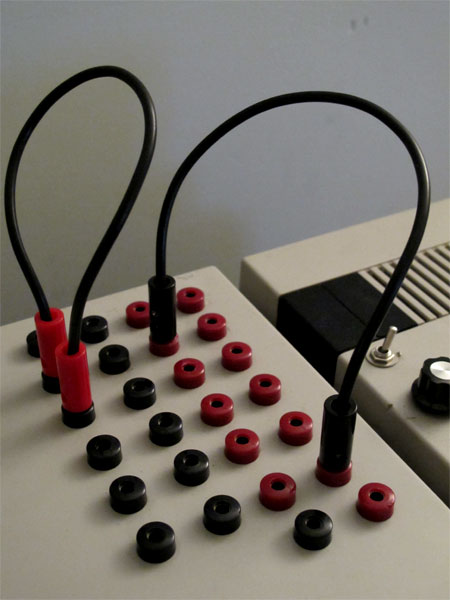
This is the patch bay for Leo. Patching the jacks offsets a short circuit that creates a visual effect, which Jeff discovered through trial and error. The patches allow him to revisit these effects - which are essentially bad reads by the system. Leo allows you to swap in and out different games - exposing the cartridges to the visual effects produced by Jeff’s modifications. Jeff described Leo as essentially an “auto-collage system” allowing a reworking of the original material through the settings he has determined.
Jeff likened his process to John Cage’s prepared instruments, such as Cage’s prepared piano - which maintain the same body, contour and design of the piano with alterations such as string length. Like a prepared instrument, the consoles bring out new characteristics and elements of the machine while still retaining much of its original architecture.
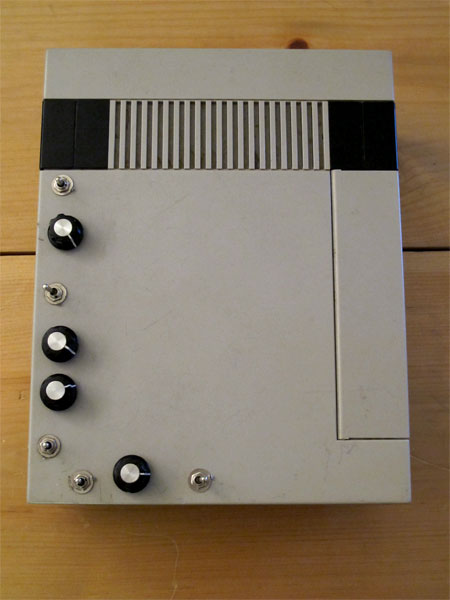
This is DH - short for “Duck Hunt.” Unlike Leo, DH only plays one cartridge - that of the game Duck Hunt - which is permanently affixed in the drive. The switches and dials on the side of DH control wired in patches, which allow the user to dial in the intensity of different effects. Jeff claimed that the console produces some of the wildest, chaotic imagery of all his consoles.
He used some of this output for a series of panels attached to poles around Baltimore during the festival Artscape in 2006 - which he showed me, below.
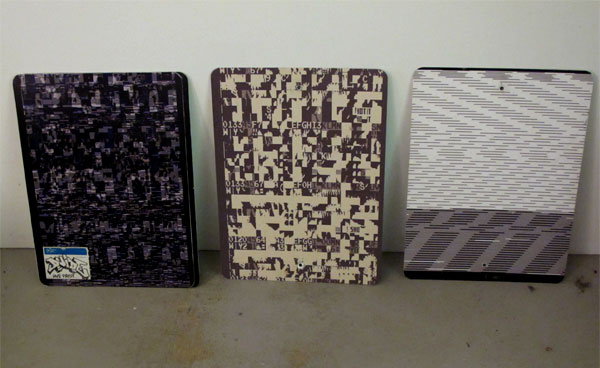
DH also produced the patterns for the wallpaper used in his installation work Reset:

We talked a bit about RESET - one of Jeff’s most ambitious installations to date, the work is in the group exhibition "Playlist," currently up at iMAL in Bruxelles. Jeff has shown iterations of RESET before, during the annual circuit bending festival Bent in 2009 and the Esther Klein Gallery in Philadelphia. Jeff described RESET as a “glitch environment” which turned the room into an instrument - making it the interface and the source of interaction with the system. Four different lasers were set up to four different photocell resistors, so that visitors walking into the space would trip lasers, thus triggering effects. He used two of his Nintendo systems in RESET, which was the source of the audio/visual material manipulated by the movement of visitors.
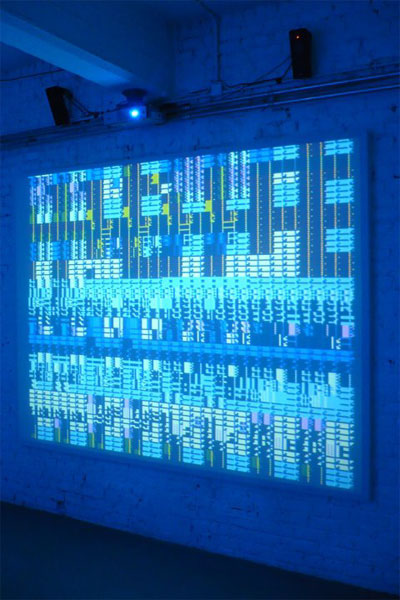
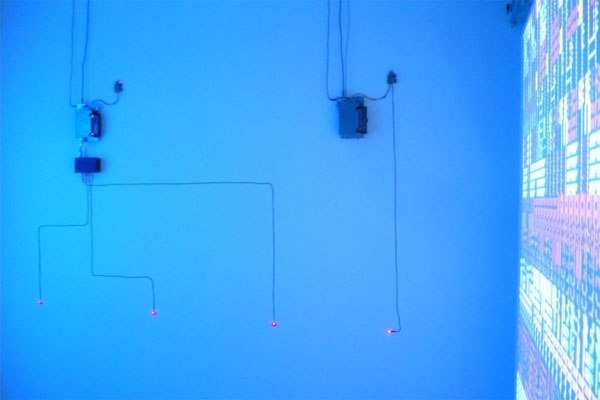
Lastly, Jeff showed me his modified SEGA console, which operates similarly to Leo. Users can switch out games and patch in different effects to modify the audio/visual output of the system. Jeff mentioned that he’s interested in making his own games as well at some point, as a source for new graphics for his consoles. I asked him about his collection of games, and it sounded like he had amassed quite a store of them, mostly from eBay, thrift stores, and random gaming outlets.
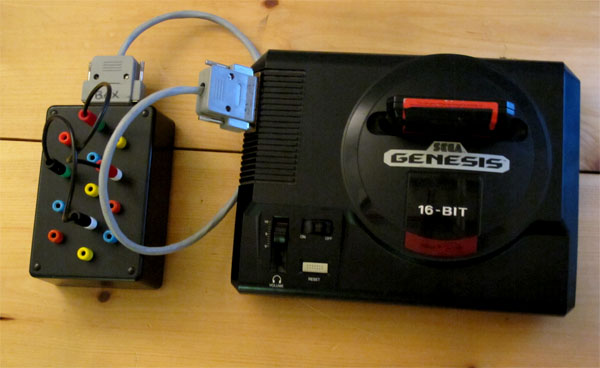
Thank you Jeff for the visit! Be sure to check out more of his work, here.

